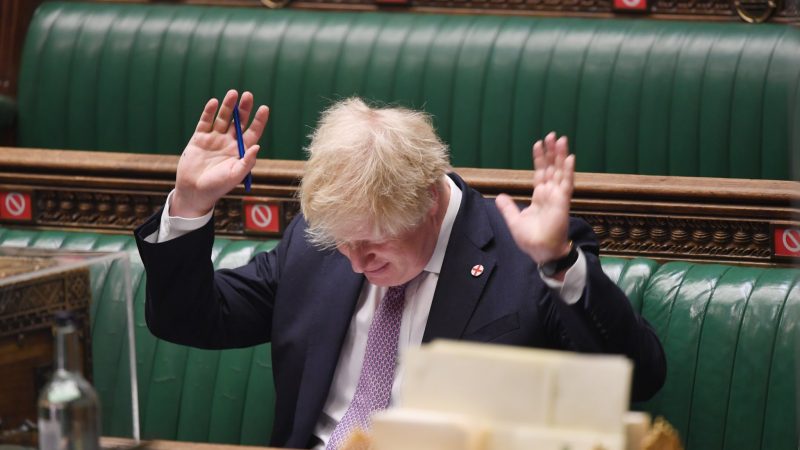
This week, the government, in one fell swoop, broke a manifesto promise and a pledge to the poorest people on our planet. It is a decision that will lead to the preventable death of children and dramatically weaken the UK’s influence abroad. To some, this may seem like a hyperbolic statement from a Labour supporter bemoaning the Tory cut to the aid budget. But if you don’t believe me, listen to what Conservatives had to say.
“We made a promise to the poorest people in the world. The government has broken that promise,” Theresa May said, before voting against the cut. “Fewer girls will be educated, more girls and boys will become slaves, more children will go hungry and more of the poorest people will die.” John Major, with ever-increasing shade, undermined the argument that a cut was fiscally necessary, stating that “it seems we can afford a ‘national yacht’ that no one either wants or needs, whilst cutting help to some of the most miserable and destitute people in the world”. Andrew Mitchell, former Tory chief whip, said the decision would destroy the country’s “hard-won soft power reputation as a world leader in development”.
So we know the Conservatives have once again made a bad decision for the wrong reasons. Another week in Johnson’s Britain. But whilst we may acknowledge the malignant effect on our nation and the world, what about the politics? Political commentators said this was a popular move, and would show voters that Johnson was on ‘their side’, prioritising those at home rather than foreigners abroad.
Polling from YouGov in late 2020 suggests they are right. Two thirds of people said they believed reducing the amount spent on overseas aid was the right decision, against 18% who said it was the wrong call. But dig a little deeper and the picture is more nuanced. A different framing of the question gets a very different answer.
Another poll by Opinium in April shows that 45% of voters in Conservative-Lib Dem marginal seats believe Britain has a moral obligation to help the world’s poorest people. Research from the University of London and University of Birmingham that tracks opinion over time always mentions that aid is focused on helping those that are poor. Their data shows an increase in support for aid from 46% in September 2019 to 53% today.
Even then, crude polling figures only tell part of the story. David Cameron was always eager to put his commitment to the 0.7% aid target at the heart of his attempt to detoxify the Conservative Party. Boris Johnson is unable to defy the gravity of British politics completely and this cruel cut, in the context of his run-ins with Marcus Rashford over free school meals and his forthcoming cut to Universal Credit, will hit home with the public eventually. When pictures of starving children in war-torn Yemen or refugees fleeing Syria emerge on our television screens, the government needs to be reminded of their shameful decision too.
But it is far from enough for Labour to rest on its laurels and assume it can win by simply showing the Tories to be nasty. The challenge is to ensure that these shallow decisions when unravelled show a weaker, less prosperous Britain for us all.
In another question put to a representative sample of the electorate, foreign aid was found to be the least important international issue behind climate change, defence and security and trade. There is, perhaps understandably, more of a focus on issues that seem to directly affect us, than those that do not. But in reality our aid budget is pivotal to all three of these policy areas.
£5.8bn of the annual aid budget (around a third) was committed to climate action in developing countries (whose development of green technology will be pivotal to making carbon emission targets), with a commitment to double this pledge over the decade. The government’s own integrated review of security, defence development and foreign policy emphasised the importance of aid spending for meeting its strategic objectives around the world. In a speech only last year, the UK’s ambassador to the World Trade Organisation was proudly emphasising our commitment to development as a commitment to trade when addressing foreign leaders.
The moral argument for the aid budget is the most powerful and important, but the self-interested, hard-headed analysis must be made too. Since leaving government in 2010, Labour has too often been seen merely as a vehicle for campaigns and moral issues rather than a political party created to form a government in the national interest. This does not mean sacrificing our morals or diluting our radical zeal, but it does mean being aware of the realities of the world we live in, the need for difficult decisions and the public’s priorities.
Labour was right to defend the aid budget and can, with the right arguments, explain to the public the devastating effect it will have for them – and the most vulnerable in the world.




More from LabourList
‘The Sherriff of Wild Westminster: what must change in elections bill’
‘The hope that kills you’: Reflections from the final day in Gorton and Denton
MPs, union leaders and organisations react to ‘bruising’ Gorton and Denton result